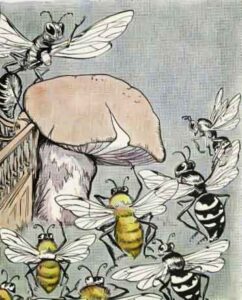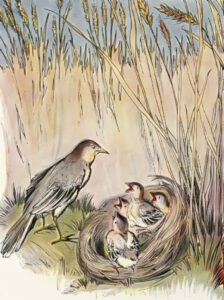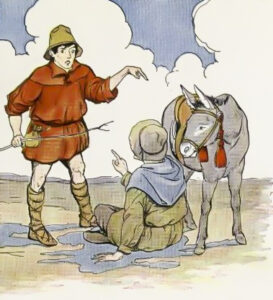
Simple Japanese short stories for beginners
Learn Japanese with Easy and Simple Japanese Short Stories
Navigate across the page
Learning Japanese through short stories for beginners can be an effective and engaging way to enhance your language skills. Japanese short stories offer a unique opportunity to explore the Japanese language within the context of relatable narratives, helping you grasp new vocabulary, grammar structures, and cultural nuances.
These stories often present everyday situations, allowing learners to develop a deeper understanding of Japanese sentence building and grammar. By immersing yourself in the characters’ experiences, you can gain insights into the language’s subtle intricacies.
Short stories provide a manageable length for learners, enabling them to practice reading and comprehension at their own pace. With each story, you can encounter new vocabulary and grammar patterns, gradually expanding your linguistic repertoire. Furthermore, the repetitive nature of certain phrases and sentence structures within the stories aids in reinforcing essential language elements.
To maximize the learning experience, it is beneficial to use resources specifically designed for Japanese learners, such as bilingual storybooks or those with furigana (phonetic characters) accompanying kanji. These resources offer translations, explanations, and exercises that reinforce comprehension and reinforce language acquisition.
Incorporating short stories into your Japanese learning journey can foster a love for reading, deepen cultural understanding, and enhance language proficiency. So grab a book of Japanese short stories and embark on an enjoyable and educational adventure today!

Akbar and Birbal - Set 1
Is Japanese hard or Easy to learn?
Trying to see if you want to learn Japanese? Japan is one of the most beautiful countries in the world. Many people in east Asia (and even Europe nowadays) want to learn to speak Japanese.
Like any other language, the difficulty of learning Japanese will vary from person to person depending on various factors such as your native language, previous language learning experience, and personal learning style. However, in general, Japanese is considered to be a challenging language for non-native speakers.
Japanese as you are probably aware has a complex writing system with three scripts (hiragana, katakana, and kanji), intricate grammar rules, and a different sentence structure compared to many Western languages. Additionally, Japanese pronunciation can be challenging due to its unique sounds and intonation patterns.
Despite the difficulties, with dedication, practice, and effective learning resources, learning Japanese is certainly achievable. It requires perseverance and patience, but the rich culture, fascinating history, and rewarding experience of mastering the language make the journey worthwhile.
How Long Does it Take to Learn Japanese?
Similar to what was described earlier, it might take you anywhere between 6 months and 10 years to learn Japanese based on several factors, such as the learner’s dedication, prior language learning experience, study methods, and the amount of time dedicated to learning each day. If your base language is Chinese or Korean, you of course will eb able to learn faster than someone who is only aware of English.
If you were truly dedicated and are willing to give the hours, this is a fair timeline for how long it would take for a person to learn Japanese.
- It takes about 3-4 months of learning Japanese daily, maybe 4-6 hours a day, to become conversant in super simple Japanese sentences and vocabulary and also basic high level repetitive conversations. Imagine something like a conversation in supermarket or about the weather..
- It takes about 1-1.5 years of learning Japanese daily to be able to deep dive into topics and to be able to converse for about a few minutes about most commonplace topics. Example you are talking about your job and your life, daily plans and making new plans etc.
- It takes about 2-3 years of learning Japanese daily to become near native in being able to understand and discuss on any reasonably common topic (not like discussing the nuances of surgery or maybe chemistry)
However, it’s important to note that absolute proficiency is a continuum, and learners can achieve different levels of proficiency based on their goals. Building advanced proficiency, including fluency in reading, writing, and understanding complex nuances, may take several years of dedicated effort.
Ultimately, the speed of progress depends on the learner’s commitment, consistency, and exposure to the language through immersive experiences, language exchanges, or formal instruction.
Simple Japanese Short stories for beginners
These are 10 of most simple and easy Japanese short stories for beginners. These are very popular Aesop Fables which most of you would know ever since you were children. So you will be able to align with the context well and understand and learn Japanese language better.
Little Red Riding Hood
Once upon a time, there was a cute little girl named Little Red Riding Hood. She wore a bright red cloak and loved visiting her grandma in the cozy cottage deep in the woods. But one day, she met a tricky wolf who wanted to gobble up her grandma! Get ready for an exciting adventure filled with bravery and cleverness! This is a very famous short story which has been translated into simple Japanese.
The tortoise and the hare
“The Tortoise and the Hare” is a timeless fable about a slow and steady tortoise and a fast but arrogant hare. They decide to race each other, and the hare, confident in his speed, dashes ahead. However, his overconfidence leads him to take a nap, allowing the determined tortoise to win the race. Read this famous short story in Japanese with English translation
The crow and the pitcher
In the heartwarming fable of “The Crow and the Pitcher,” a thirsty crow encounters a pitcher with water, but the water level is too low for the crow to reach. With clever thinking, the crow drops pebbles into the pitcher, raising the water level and quenching its thirst. This tale teaches us the power of ingenuity and resourcefulness in overcoming challenges. Read this famous short story in Japanese for beginners.
The Owl and the Grasshopper
In the famous Aesop fable of “The Owl and the Grasshopper,” a lively grasshopper takes pleasure in teasing a wise old owl with its cheerful chirping and nimble jumps. The owl, known for its wisdom and patience, endures the grasshopper’s mockery until it can no longer bear the taunts. In a swift turn of events, the owl catches the grasshopper and makes it its meal. This story serves as a reminder that actions have consequences and teaches us to treat others with respect and empathy. Read this short story in Japanese to boost your Japanese vocabulary.
The Lion and the Mouse
A mighty lion and a tiny mouse cross paths in the forest. The lion, initially dismissive of the small creature, finds itself trapped in a hunter’s net. Hearing the lion’s distress, the compassionate mouse comes to the rescue, gnawing through the ropes and setting the lion free. Grateful for the mouse’s help, the lion learns that even the smallest acts of kindness can have a significant impact. Learn Japanese through this timeless tale.
The city mouse and country mouse
In the charming fable of “The City Mouse and the Country Mouse,” two mice with contrasting lifestyles find themselves swapping places for a taste of each other’s worlds. The city mouse invites the country mouse to experience the luxuries of urban life, only to be overwhelmed by the constant danger and lack of peace. In return, the country mouse introduces the city mouse to the simplicity and safety of rural living. Read this lovely Aesop fable in simple Japanese for beginners.
The wolf and the crane
In the intriguing fable of “The Wolf and the Crane,” a hungry wolf gets a bone stuck in its throat and is in desperate need of assistance. Seeing the wolf’s distress, a compassionate crane offers its help. With its long beak, the crane retrieves the bone and saves the wolf’s life. However, when the crane asks for a reward, the wolf refuses, showing no gratitude for the crane’s selfless act.
The Goose and the golden egg
In the captivating Japanese short story, “The Goose and the Golden Egg” a poor farmer discovers that one of his geese lays a shiny golden egg every day. Excited by the treasure, the farmer becomes greedy and decides to kill the goose, hoping to find a cache of golden eggs inside. However, to his dismay, he finds nothing but a lifeless bird. The farmer’s impatience and greed cost him the source of his prosperity. This timeless tale serves as a reminder that greed and impulsive actions can lead to the loss of valuable blessings and teaches us the importance of appreciating and safeguarding the gifts we already have.
The Boy who cried wolf
The famous fable of “The Boy Who Cried Wolf” has been translated here into super simple Japanese language for beginners. A mischievous shepherd boy repeatedly tricks nearby villagers by falsely shouting that a wolf is attacking his flock of sheep. The villagers rush to his aid, only to discover that there was no wolf. When a real wolf finally appears and the boy cries for help, the villagers, assuming it’s another false alarm, ignore his cries. As a result, the wolf devours the boy’s flock.
Easy Japanese short stories for beginners - Set 2
When we were children, our grandparents would have told us of many short stories of Aesop’s Fables, Tenali Raman and Akbar and Birbal. These short stories were small, cute and filled with morals.
The short stories in Japanese are very intellectual and deep thinking and yet very simple to understand. The morals provided in Aesop’s Fables play a key role during the formative lives of many children.
You can read a lot of simple and easy Japanese short stories with English translation here for free. There are many simple Japanese words which you can learn from such Japanese short stories and many of them are considered basics for beginners, kids and children.
- The peacock and the crane
- The Mule
- The Monkey and the Dolphin
- The Monkey and the cat
- The Magic Carpet
- The Farmer and his sons
- The Crow and the Swan
- The bundle of sticks
- The ass and the load of salt
- Borrowed Feathers
- The two teapots
- The two cocks and the eagle
- The travellers and the sea
- The travellers and the purse
- The tortoise and the ducks
- The spendthrift and the swallow
- The sheep and the wolf
- The serpent and the eagle
- The peacocks tail
- The ass and his shadow
- The miller, his son and the ass
- The swallow and the crow
- The Lion, the Ass and the Fox
- The Mole and his Mother
- The north wind and the sun
- The Young crab and the old crab
- The wolf and the shepherd
- The wolf and the ass
- Mother Lark and Baby Lark
- The Ass and the Grasshopper
- The travellers and the tree
Why should I start reading one page Japanese short stories?
- You will get confidence only upon completion of a task.
- When I started learning Japanese, I started with a 160 page novel or not simple short stories in Japanese.
- I gave up after 3 days and stopped learning for 3 months. Do you know why?
- The reason is that I was a beginner and had a very limited vocabulary.
- Building a large vocabulary enough to read a novel takes time and patience.
- I had to spend hours going through a Japanese English dictionary for understanding the English translation for any sentence.
- What was worse was that these novels cater to seasoned readers!
- Thus each sentence was over 2 words long with many structures.
- It will take you 6 months to complete a task if the novel is 300 pages long!!!!
In a nutshell:
- I quit quickly and lost three months before I restarted.
- I realized that starting slow was the way to go.
- I started with one page short stories and here I am, easily putting entire novels away.




